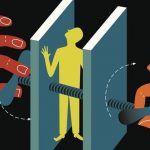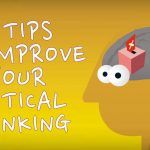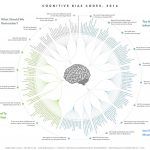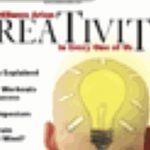Keep in mind that happiness is mostly dependent on our state of mind, not on our status or the state of our bank account. Barring extreme circumstances, our level of well being is determined by what we choose to focus on and by our interpretation of external events. For example, do we focus on the empty part or the full part of the glass? Do we view failures as catastrophic, or do we see them as learning opportunities?
Scoop.it
Hardwiring Your Happiness
February 27, 2017 – Posted in: Scoop.itInner strengths are the supplies you’ve got in your pack as you make your way down the twisting and often hard road of life. They include a positive mood, common sense, integrity, inner peace, determination, and a warm heart. Researchers have identified other strengths as well, such as self-compassion, secure attachment, emotional intelligence, learned optimism, the relaxation response, self-esteem, distress tolerance, self-regulation, resilience, and executive functions
Employers are going soft: the skills companies are looking for
February 25, 2017 – Posted in: Scoop.itThe World Economic Forum Future of Jobs report argues that emotional intelligence, creativity, and people management will be among the top skills needed for jobs in 2020.
How to Refresh Your Brain in a Matter of Seconds When You’re Stressed
February 24, 2017 – Posted in: Scoop.itExperiencing a massive brain shutdown? Try these 3 ways to restore your higher-level thinking.
5 tips to improve your critical thinking – Samantha Agoos
February 24, 2017 – Posted in: Scoop.itEvery day, a sea of decisions stretches before us, and it’s impossible to make a perfect choice every time. But there are many ways to improve our chances — and one particularly effective technique is critical thinking.
The Human Connection: The Toughest Part of Being a Leader
February 24, 2017 – Posted in: Scoop.itTaking charge can backfire unless you know the people rules for handling the tensions and conflict that are bound to arise.
Cognitive bias cheat sheet – Better Humans
February 24, 2017 – Posted in: Scoop.itFour problems that biases help us address:
Information overload, lack of meaning, the need to act fast, and how to know what needs to be remembered for later.
Feeling Our Emotions
February 23, 2017 – Posted in: Scoop.itAccording to noted neurologist Antonio R. Damasio, joy or sorrow can emerge only after the brain registers physical changes in the body
Neuroscientist Antonio Damasio Explains Emotions
February 23, 2017 – Posted in: Scoop.itThe neuroscientist Antonio Damasio explains how minds emerge from emotions and feelings.
Why ‘Well-Being’ Days Aren’t The Solution to Burnout
February 23, 2017 – Posted in: Scoop.itEver just needed a day? To catch up on sleep, read a book, do laundry, not respond to a thousand emails? You probably have but you called in sick instead of telling your boss you were taking what…Sourced through Scoop.it from: journal.thriveglobal.com

















